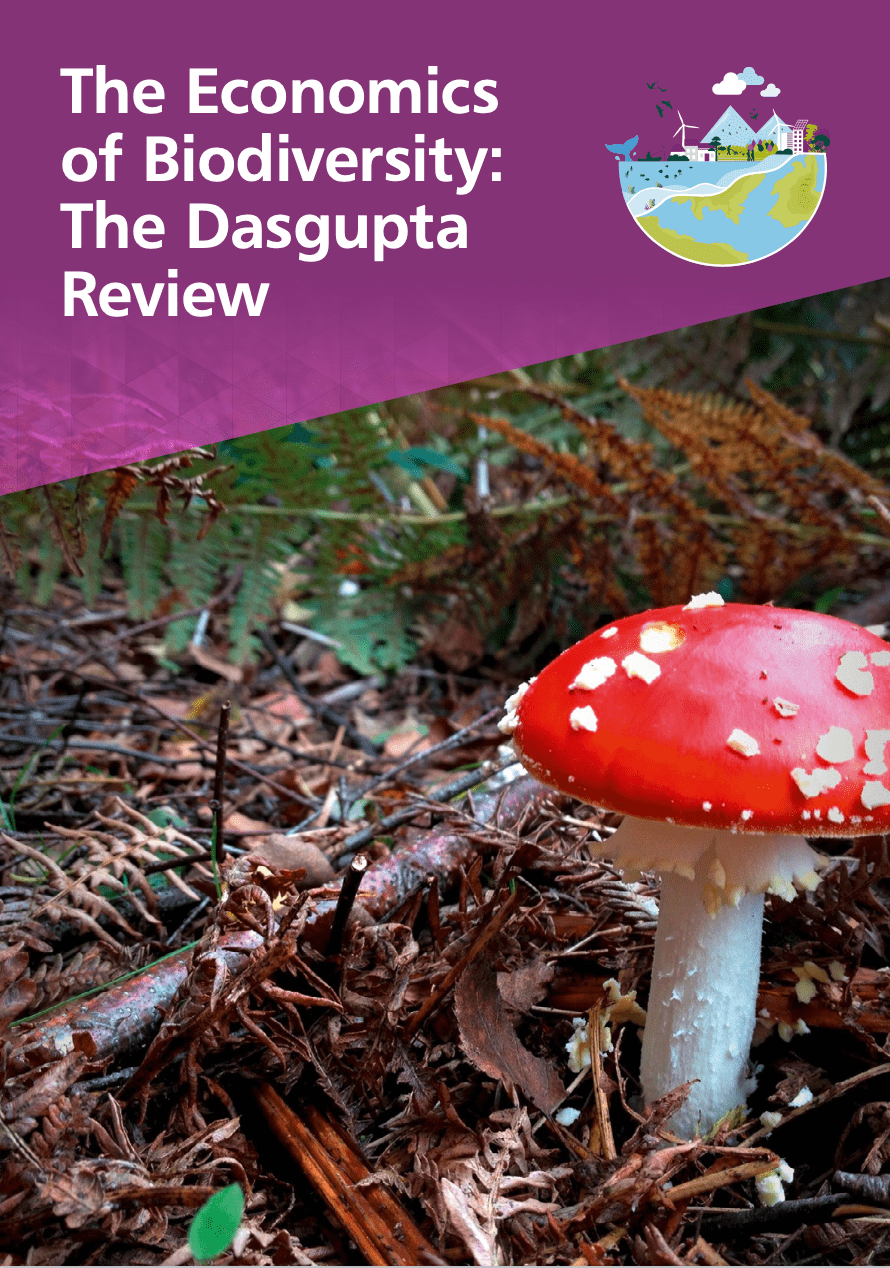
Image: Dasgupta Review

The landmark Dasgupta Review on the economics of biodiversity highlights the critical role nature plays in supporting healthy societies, resilient economies and thriving businesses, while simultaneously painting a clear picture of what we stand to lose. It calls for a fundamental change in how we think about and approach economics is needed if we are to reverse biodiversity loss and protect and enhance our prosperity.
Some key points of the review show how ecosystems face critical tipping points, extinction rates are 100 to 1000 times higher than they were 100 years ago, and per-person stocks of natural capital dropped nearly 40% between 1992 and 2014.
To set the planet on track towards nature-positivity, we must strive for what the Review refers to as “Impact Equality”, by closing the gap between our ecological footprint and what the biosphere can supply. According to the Global Footprint Network, we need 1.6 Earths to ‘satisfy our current demand on a sustainable basis’.
Businesses have a critical role to play in closing this gap and must commit and act now to become net-zero and nature-positive across their value chains. But voluntary actions on their own are not enough and won’t achieve the change scientists tell us is necessary to mitigate climate change and thrive within nature’s limits.
We also need ambitious policies that transform our economic and financial systems. In this regard, Leading businesses can, and indeed are, already informing and shaping nature policymaking. For example, more than 700 companies have signed Business for Nature’s coalition leads the Call to Action, ‘Nature is Everyone’s Business’ urging governments to adopt policies now to reverse nature loss in this decade.
Key messages
-
Our economies, livelihoods and well-being all depend on nature, and the accelerating collapse of the natural world is fuelling extreme risk and uncertainty for our economies and for our livelihoods, health and well-being.
- A reform of the measurement of economic success is needed. The use of GDP 'is based on a faulty application of economics because it measures the flow of money, not the stock of national assets. Introducing natural capital into national accounting systems would be a critical step.
- We must value and embed nature in decision-making and disclosure to go beyond short-term profit and GDP.
In order to fully integrate the value of nature in decision-making, the Review argues that we must change the metrics by which we evaluate success and move beyond our unhealthy reliance on Gross Domestic Product (GDP). While GDP is useful for short-term measurement of economic activity, it omits all environmental and social considerations and paves the way for unsustainable development. Instead, the Review argues, we must shift towards measurements of “inclusive wealth,” which incorporate natural capital, as well as produced and human capital. The Review also recognises the importance of social capital, which – like biodiversity – it frames as an enabling asset. It argues social capital – more simply,trust – increases the value of an economy’s capital goods and is essential for the effective institutions needed for sustainable engagement with nature.
- It is needed to move towards an inclusive wealth model, where the value of natural, social and human capital sits at the heart of decision making alongside produced capital.
It is vital that we mainstream natural capital assessments, to ensure the value of nature for people and the economy is visible and considered in decision-making for governments, companies and financial organisations.
By measuring our wealth in terms of all assets, including natural, social and human capital, inclusive wealth measures provide a clear and coherent measure – as well as a holistic picture – that can be used by businesses, financial institutions and governments to enhance value across these assets.
The report recommends that introducing natural capital into national accounting systems would be a critical step towards making inclusive wealth our measure of progress.
A capitals approach, like the one developed by the Capitals Coalition, which recognises that our success is dependent on the value we receive from the capitals, (natural capital, social capital, human capital and produced capital) is a critical framework that can empower the global community to operationalise the recommendations set out in the Dasgupta review.
A series of tools to support nature-related risks assessments mentioned by the publication the Natural Capital Protocol, ENCORE, Integrated Biodiversity Assessment Tool (IBAT) and SCRIPT.
- It is time to reform subsidies and incentive mechanisms and finance a just transformation.
According to the review, transformation of our financial systems – public, private, national and international alike – is critical to spur the change needed. Financial investments which harm ecosystems and biodiversity must be diverted towards those investments which restore and replenish nature. We must eliminate harmful subsidies that damage nature to the tune of US$4-6 trillion per year and redirect them to reward businesses who design innovative, circular and profitable business models that deliver positive long-term outcomes for nature.




No Comments